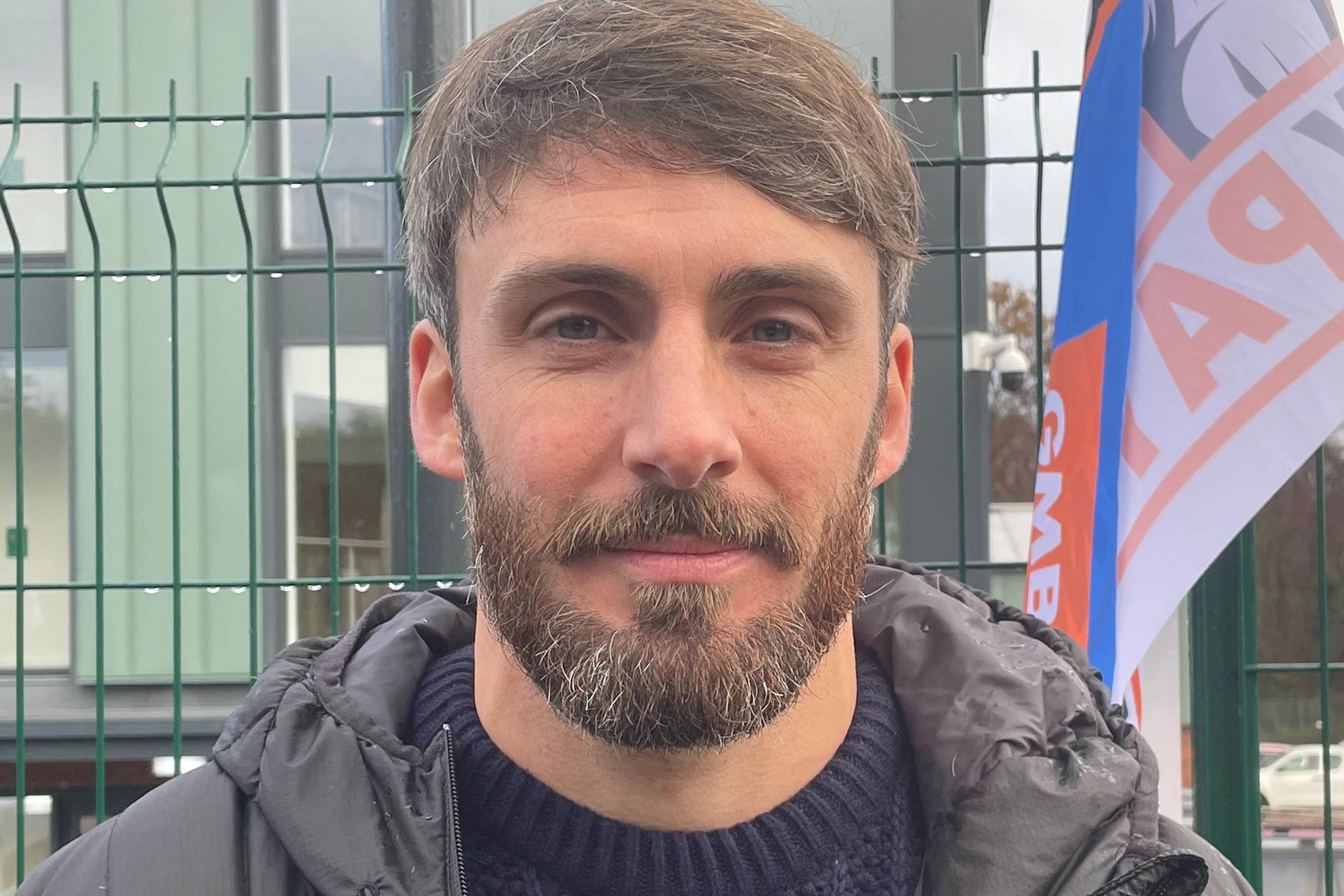Ex-Marine among striking ambulance workers says something needs to change
Harry Maskers said ‘the kicker’ for him deciding to walk out was the Government’s refusal to discuss the issue of pay.

A former Royal Marine who is among striking health workers described it as “demoralising” to spend entire shifts waiting outside hospitals with patients stuck in the back of ambulances as he demanded “something needs to change”.
Harry Maskers from Cardiff has worked as an emergency medical technician for three years.
The 34-year-old who works for the Welsh Ambulance Service said that while he was unable to strike during his military career, he was taking the opportunity to do so now, with “the kicker” being the Government’s refusal to discuss the issue of pay.
Every shift feels like a strike anyway because most of the time we’re not responding to calls
The UK and Welsh Governments have continued to cite the independence of the pay review process as both refuse to negotiate on pay demands.
Health Secretary Steve Barclay on Wednesday argued that there is now a need to “look forward” to next year’s pay process as he declined to review the current offer to striking workers.
Health is a devolved matter in Wales and Mr Barclay’s counterpart in the Senedd, Eluned Morgan MS, has repeatedly claimed that without further funding from Westminster they will not be able to further increase wages.
While some ambulance workers have said they will leave the picket line to attend emergency calls during the industrial action, Mr Maskers said he had taken the “difficult decision” not to, describing a normal working day as feeling like being on strike due to the obstacles involved in trying to do their job properly.
He told the PA news agency: “There’s a number of reasons I’m choosing to strike today but I think the kicker for me was the Government saying they’re not even going to discuss a pay increase with us.
“So I’ve made the difficult decision to come into work to strike in civilian clothes. I won’t be responding to critical calls like many of my colleagues who are doing the same.
“All the calls we respond to on a day-to-day basis are critical anyway so personally I feel that if you come in and do the derogations nothing really changes.
“Every shift feels like a strike anyway because most of the time we’re not responding to calls.
“A lot of the time I’ll sign on to an ambulance and the first job of the day is to go down to the hospital, relieve the night or day crew, and then I will spend my whole shift outside the hospital.”
It’s beyond a joke now and something needs to change
He described patients having to be cared for while stuck in the back of ambulances for hours on end.
Mr Maskers said: “We didn’t join to do that, and it’s so demoralising for us and most importantly, regardless of what we’re feeling, there’s a patient on the back of the ambulance who potentially has waited up to 30 hours or more for us to come.
“Then they will have to wait an insane amount of hours outside hospital, only to be let in and have to wait X amount of hours to see a doctor or a nurse because they’re also chronically understaffed and stressed.
“The back of an ambulance is no place to toilet someone, to wash someone, to comfort someone in distress.
“I feel like unless I take action this pattern will continue.”
He said he knows of colleagues who have had to use food banks due to how much they are struggling financially.
Asked about the cost-of-living crisis, Mr Maskers said: “Doing a job not for the money is all well and good, but it doesn’t pay your mortgage, and it doesn’t put food on your kid’s table.
“I earn less now than I did when I was 20 and working in a call centre, and believe me I experience a lot more trauma in this job.
“I’m a single dad but I’m fortunate, I have a strong support network and family around me. But I know people a lot worse off who are having to use food banks.
“One day you’re saving someone’s life or holding someone’s hands because their son has committed suicide upstairs.
“The next day you’re going into a food bank because you can’t feed yourself. It’s beyond a joke now and something needs to change.”
Bookmark popover
Removed from bookmarks